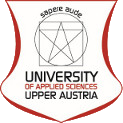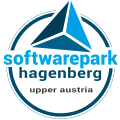AEDA - Advanced Engineering Design Automation

Project duration from 2014-11-01 to 2018-10-31
Funded by: FFG
Partners:
- V-Research GmbH
The primary objective of this K-Project coordinated by V-Research is to provide an integrated platform for the automation of engineering design tasks. The platform will consist of a conceptual framework, including generative methods and algorithms for design automation as well as a software framework based on the implementation of those methods. Additionally, it will include methods for knowledge acquisition as to the rules and procedures used by domain experts during the engineering design process. Metrics for a-priori as well as a-posteriori cost-benefit assessment of particular automation projects will round off the project deliverables. The results of the project will be evaluated and benchmarked in real-world test-beds defined by the company partners.
The results of this project will directly contribute to implementing the following competitive advantages:
- Reduction of development costs;
- shorter development cycles;
- expert knowledge capture;
- preservation and management of knowledge;
- reduction of error rates in product design;
- increased degree of standardisation of parts and assemblies;
- increased standardisation of design processes.
Besides that, projects already accomplished by the consortium leader together with two lead users, Liebherr and Schelling, resulted in considerable lead in the sales process: multiple designs could be created and offered in virtually no time (up to 90% of the design time was saved due to the automation) and automatically generated simulations of the design could be presented to the customers as a measure of trust building.
The AEDA K-Project, from the scientific point of view, will focus on the research and development of generative methods and algorithms for design automation as well as the implementation of a software framework based on those methods. By doing so, from the economic point of view, AEDA will make mechanical and mechatronic design-automation technology available to a broader industry sector and to companies with smaller to upper-medium yearly turnovers. This goal is reflected in the composition of the consortium.
AEDA will thus provide scientific contributions to major aspects of both Computational Design Synthesis and Knowledge Based Engineering.
The whole project is divided into 6 multi-firm and 2 strategic research projects:
- Strategic Project 1: Design Synthesis and Component-Based Design Optimisation;
- Strategic Project 2: Integrated Engineering Design Automation;
- Multifirm-Project 1: Test-Bed for Design Synthesis towards Optimisation of Original Designs;
- Multifirm-Project 2: Design Automation in Integrated Virtual Product Creation;
- Multifirm-Project 3: Automated Design Knowledge Acquisition;
- Multifirm-Project 4: Integrated Techniques for Design Model Analysis;
- Multifirm-Project 5: Automated Development and Optimisation of Modular Products
- Multifirm-Project 6: Verification and Validation of Design Solutions.


